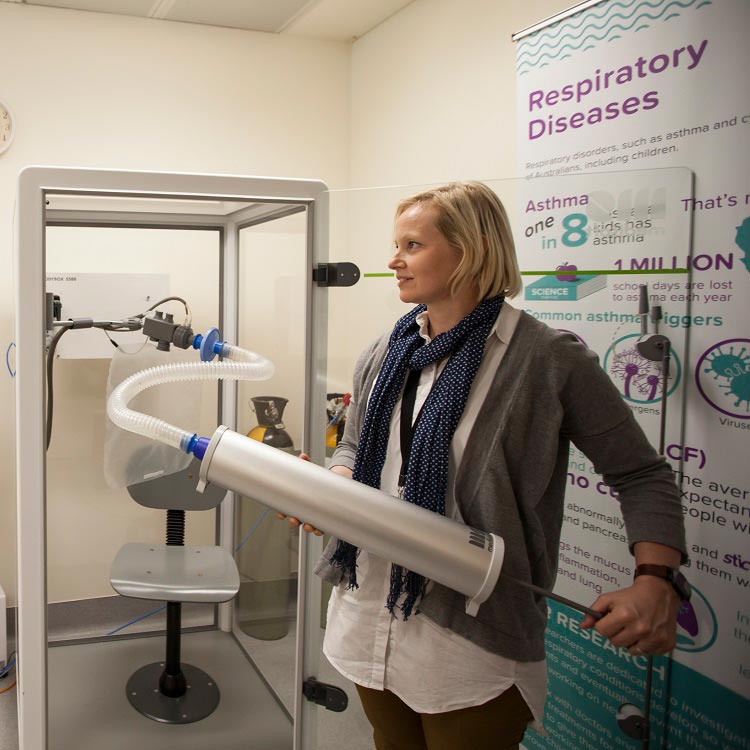Search
Showing results for "lung disease preterm"
Research
The development and refinement of a sensitive bedside test to continually measure the severity of BPD and lung development in preterm infantsGraham Jane Shannon Hall Pillow Simpson BAppSci PhD CRFS FANZSRS FThorSoc FERS BMedSci (Dist) MBBS, PhD (Dist) FRACP BMedSci (hons), PhD Honorary
Research
Characterisation of lung function trajectories and associated early-life predictors in an Australian birth cohort studyThere is growing evidence that lung function in early-life predicts later lung function. Adverse events over the lifespan might influence an individual’s lung function trajectory, resulting in poor respiratory health. The aim of this study is to identify early-life risk factors and their impact on lung function trajectories to prevent long-term lung impairments.
Research
Using lung function measurements to greater advantage in patients with lung disease: Which test and when?This paper is an introduction to a series of articles about improved measurement of lung function in patients with chronic lung disease.
Research
Physiological responses to exercise in survivors of preterm birth: a meta-analysisSurvivors of preterm birth (<37 weeks' gestation) have low peak oxygen uptake, a global measure of aerobic fitness and an established predictor of increased morbidity and mortality. However, little is known about other cardiopulmonary outcome measures in this population. We addressed the hypothesis that preterm birth is associated with abnormal respiratory, cardiovascular and metabolic responses to exercise, as assessed by cardiopulmonary exercise testing, via a systematic review and meta-analysis.

News & Events
Very preterm babies at risk of declining lung function throughout childhoodA The Kids Research Institute Australia study published in The Lancet Child & Adolescent Health has found that survivors of very preterm birth face declining lung function
Research
Delayed airway epithelial repair is correlated with airway obstruction in young adults born very pretermNasal epithelial cells from young adults with a history of very preterm birth show delayed closure following scratch-wounding. Repair correlated with lung function, suggesting epithelial barrier integrity may play a role in preterm-associated lung disease.
Research
WALHIP Exercise StudyWhen babies are born early or ‘preterm’ their tiny bodies are put under a lot of stress that can result in health problems in later life.

News & Events
Wal-yan researchers secure three MRFF grants to tackle childhood lung diseaseThe Wal-yan Respiratory Research Centre is thrilled to see three researchers awarded prestigious Medical Research Future Fund (MRFF) Chronic Respiratory Conditions grants to improve lung health in children.

People
Associate Professor Shannon SimpsonHead, Strong Beginnings Research, Co-head Foundations of Lung Disease
Research
Identifying pediatric lung disease: A comparison of forced oscillation technique outcomesThese findings suggest the utility of specific FOT outcomes is dependent on the respiratory disease being assessed
